A dedicated and talented group of honorees with an almost unbelievable range of experiences – locally to globally – comprise the 2020 Daily Texan Hall of Fame class.
Consider these success stories of the honorees:
√ Two globe-trotting, Pulitzer Prize-winning former AP photographers.
√ A medical reporter and podcast host with 80 million downloads for a recent series.
√ A former Texan staffer who has been the face – and voice – of the Longhorn athletics for more than 50 years.
√ A Washington Post business and finance reporter focusing on Wall Street and government programs launched to save small businesses from collapse and the growing eviction crisis.
√ A distinguished, internationally known journalist and educator who was also long-time dean of the School of Journalism and Mass Communication at the University of North Carolina at Chapel Hill.
√ A longtime foreign correspondent with a string of awards who is now active in assisting media publications in developing countries.
In addition, a Rising Star winner was selected, representing the best and brightest of today’s generation of journalists.
Also, the Griff Singer Award will go to two individuals who did not work on The Texan as a student journalist but provided substantial aid and support to The Texan and its journalists.
The awards are sponsored annually by the Friends of The Daily Texan, a nonprofit group established in 2013 to support journalistic quality and a strong future in a digital world for The Daily Texan, student newspaper at the University of Texas at Austin.
Funds raised by the Friends group are used to support The Texan’s needs and coverage, plus scholarships for staff memberd each year.
Normally the awards are presented at the annual Daily Texan Hall of Fame dinner, but due to health and safety concerns, these awards will be presented virtually. (The dinner is the group’s main annual fund-raiser; if you wish to donate to support Texan staff scholarships and other needs of The Texan you will find info at the bottom of this article.)
This year’s Daily Texan Hall of Fame honorees are:
The Griff Singer Award
This award is presented to an individual or individuals who did not work on The Texan as a student journalist but provided substantial aid and support to The Texan and its journalists.
Two honorees:
- Art Rinn, the longtime production superintendent who helped take The Texan literally from Gutenberg era printing through offset to the digital age.
- Dolores Moore Ebert Rinn, the longtime administrative right hand to a host of TSM general managers and a friend to every student editor struggling with how to work within budgets, file expense reports and submit requests for travel, new equipment or whatever.
Art and Dolores were devoted TSM staff executives who worked independently throughout their long careers, but on retirement, were married.
ART RINN
Art arrived at TSP in 1957, fresh out of the Air Force as the Korean War wound down and needing a job. He was married, had kids and wanted to go to school. Art got a tip from a friend and arrived at the right place at the right time. The apprentice working in The Daily Texan composing room had earned his journeyman’s card and his degree and was headed to new territory. Art signed on as a “galley boy-printer’s devil, the prelude to being accepted into what was then a six-year apprenticeship, somewhat like what electricians still go through today.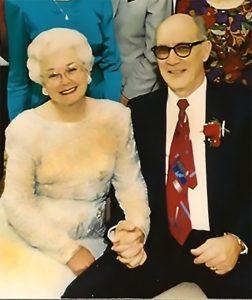
Art was a natural. He progressed quickly, earned his journeyman card — and never left TSP. When the legendary W.T. “Slim” Hays retired, Art got his job as production supervisor. Without a doubt, he could have been called “Professor Rinn,” because he did so much teaching as he worked with student journalists nightly for 36 years. Talk about a pillar of patience? Art indeed was that, and alums of The Texan can be forever grateful for his mentoring.
DOLORES MOORE EBERT RINN
Dolores Rinn has a similar story. She went to work for Texas Student Publications (now Texas Student Media) at the University of Texas in 1964. She held several positions and retired as the Executive Administrative Assistant to the General Manager in 1992.
Counting the number of TSP-TSM meetings she attended, taking excellent minutes of the sometimes-contentious discussions, fighting off the attempted takeover of The Texan pushed by the late Frank Erwin. It was a high-pressure job, serving all aspects of TSM activities.
Student editors often got frustrated by the rules imposed by UT in filing expense and budget reports. But Dolores, most always with a smile and the understanding of a mother, would walk them through. She easily could have been named St. Dolores.
For her devotion and long history of being such a positive force over 25 years, The TSP Board established the M. Dolores Ebert Employee Excellence Award, presented annually to the now TSM staff member deemed to have done exemplary work over the past year. That award continues today.
Two great people who served students. Two great people who worked together for more than 25 years. And two great people, who shortly after retirement, were married. Art was a widower, and Dolores had experienced the deaths of two spouses.
Art retired in late November 1993, and they were married the following month.
Art died in 2010 and Dolores passed away in 2012. Their memories live on.
Rising Star Award
This award is presented to a recent graduate who, while still early in their career, has produced exceptional work and illustrated strong commitment and education to the field of journalism.
ABBY JOHNSTON
Abby is deputy editor of The 19th, a nonprofit, nonpartisan newsroom reporting at the intersection of gender, politics and policy. The 19th is based in Austin and was established earlier this year.
Before moving to The 19th, Abby was the executive editor of the Texas Observer, focusing on growing their digital audience and reporting partnerships. She was previously the digital editor at PBS investigative series FRONTLINE and a senior editor at Texas Monthly, where she worked for four years.
She has also been a longtime contributor to the Austin Chronicle and a news editor at Bustle.
She and five of her colleagues at Texas Monthly won a National Magazine Award in the leisure interest category in 2017. She also won a scholarship from the White House Correspondents’ Association while completing her master’s thesis at the University of Missouri.
At The Daily Texan, Abby spent several semesters reporting on the Life & Arts desk and served as the deputy editor of the web production team for a summer. She was also very involved at KVRX.
She graduated from the University of Texas with journalism and French degrees in 2012 and spent a year working for Texas Student Media, where she served as a professional advisor for Longhorn Life magazine and managed print production for the Texan.
Daily Texan Hall of Fame Honorees
LAURA BEIL
Laura Beil is an independent journalist in Dallas, specializing in medicine, health policy and science.
She was the recipient of the Victor Cohn Prize for Medical Science Reporting in 2018. Her work has appeared in The New York Times, Cosmopolitan, Reader’s Digest, Texas Monthly, Men’s Health, and Science News.
She was a medical reporter for the Dallas Morning News from 1992 to 2006.
In 2018, she reported and hosted the podcast Dr. Death, which has been downloaded 80 million times worldwide and will be made into a television series.
Her latest podcast Bad Batch looks at the for-profit stem cell industry.
She writes frequently for the New York Times (including two front page features), Science News and Cure. Her work has appeared in Reader’s Digest, Self and Newsweek, and she has upcoming features in Ladies Home Journal and Parenting.
RICHARD R. COLE
For 26 years (1979-2005), Richard Cole served as dean of the School of Journalism and Mass Communication at the University of North Carolina at Chapel Hill. Cole led a strong faculty in moving the School into national rankings in the top five – and frequently the top one, two or three – journalism-mass communication programs in the country. Cole also led the School to increased international prestige through programs in Eastern Europe, Russia, Mexico, Cuba and Africa.
He received his bachelor’s degree in journalism from the University of Texas at Austin in 1964, where he worked on The Daily Texan as an undergraduate and was managing editor his senior year. With other staff members, he covered the Kennedy assassination, the world’s fair in New York City and many other events. As an undergraduate and a graduate student, he received several scholarships and awards from the School of Journalism. He was also a teaching assistant there. He received his master’s in mass communication from UT.-Austin in 1966. He received the Ph.D. in mass communication research from the University of Minnesota in 1971.
In 2005, Cole was inducted into the N.C. Journalism Hall of Fame. Also that year, he received a Distinguished Service Award from the General Alumni Association of the University and the state of North Carolina’s Order of the Long Leaf Pine, which was conferred by the governor and is considered to be North Carolina’s highest award.
He is now the John Thomas Kerr Jr. Distinguished Professor Emeritus and Dean Emeritus. After he officially retired from UNC-CH, he volunteered for the School of Media and Journalism (the new name of the School) as the director of its Visiting International Scholars program, which has some 50 mid-career professional journalists or professors from many countries who visit for a year each.
An eminent professorship, permanently endowed, in the School is named for Cole and carries his name in perpetuity, as do an annual research assistantship for a graduate student and a scholarship for a high school student.
An annual faculty award for outstanding service to the School is named for him as well. He was inducted into the Order of the Golden Fleece at the University of North Carolina at Chapel Hill and received the Earle Gluck Distinguished Service Award from the N. C. Association of Broadcasters in 2004.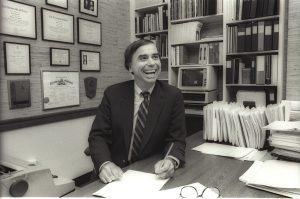
He has been on the national Board of Directors of Lee Enterprises, Inc., which owns more than 50 newspapers and other media holdings, since 2006.
In summer 1992, Cole received the Freedom Forum Medal for Distinguished Accomplishments in Journalism-Mass Communication Administration. The award, given for lifetime achievement, had been given only three times previously. Cole, at 50, was the youngest person to have received it.
Cole was national president of the Association for Education in Journalism and Mass Communication (AEJMC) in l982-83; membership was then more than 2,000 professors in the United States and other countries. He was national president of the Association of Schools of Journalism and Mass Communication (ASJMC) in l986-87; ASJMC is the organization of mass media deans across the country and beyond. For 10 years, he was book-review editor (or co-editor) of Journalism Quarterly.
He holds a University-wide teaching excellence award at UNC-Chapel Hill, and he has been a member of many national and international boards, task forces and the like. He chaired the Freedom Forum’s national Scholarship Committee for years and was a member and then chair of the national Steering Committee of the Hearst Foundation’s journalism awards program in 1981 to 2005. He still serves as a national adviser to the awards program.
He was vice president of the national Accrediting Council on Education in Journalism and Mass Communications (ACEJMC) in 1987-95. He chaired or was a member of national accrediting teams to more than 70 mass-communication schools across the United States, one of the few educators to visit so many.
He has been a consultant to several state governments in the United States and more than 30 universities in the United States, Mexico, China, Puerto Rico, Russia, Cuba, Chile and the United Arab Emirates. He took more than a dozen classes to Havana, Cuba, over spring break each year beginning in 1993. He took classes to Mexico City for more than 20 years. For eight years, he was a vice president of the worldwide International Association for Mass Communication Research (IAMCR). He also served as chief judge of the H.L. Mencken Writing Award for eight years.
He is editor of the book titled Communication in Latin America: Journalism, Mass Media and Society (1996), the co-author of a book and the author of articles in Journalism Quarterly, Gazette: The International Journal for Mass Communication Studies, American Behavioral Scientist, Journalism Educator and other scholarly publications. He has concentrated on research in three areas: international communication, concerns of professional journalists and education for journalism-mass communication. He is listed in Who’s Who in America and Who’s Who in the World.
He was married to Lynda Painter Cole for 32 years before she died in 2000. She received her bachelor’s (1964) and master’s (1966) degrees from U.T.-Austin. She became a well-known and highly respected researcher in family planning and new methods of contraception nationally and internationally. An award is her name is given to an international physician -researcher by Family Health International (FHI360) annually in perpetuity.
DAVID DEVOSS
David DeVoss was Managing Editor of The Daily Texan and has been a professional journalist since 1968 when he joined the Time-Life News Service as the youngest staff correspondent in the history of Time Magazine.
He worked in Houston, Montreal and Detroit before becoming a war correspondent at age 24 in Saigon.
After four years in Los Angeles covering the music industry, he returned to Asia in 1977 serving as Time’s Hong Kong correspondent and Bangkok Bureau Chief before moving to Mexico City to report on the wars in Central America.
In 1985, the Los Angeles Times hired DeVoss to be a Special Correspondent with the Los Angeles Times Magazine. While there he won three national writing awards in four years. Then he became the Americas Correspondent and Editor for Asia, Inc. and Asia Times, a business magazine and newspaper published by the Manager Media Group in Thailand.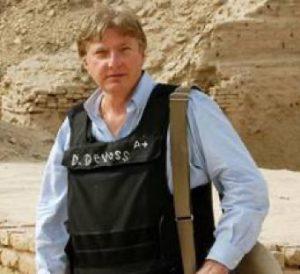
In 1998, after 30 years in journalism, DeVoss entered the field of International Development. He headed a $2.5 million print media development program in Bosnia and Herzegovina before moving to East Timor where he helped the UN transition authority and establish a sustainable print media consortium from a number of struggling publications.
DeVoss served as the Senior Information Officer for the U.S. Agency for International Development in Baghdad in 2004 and 2005. From 2008 to 2013 he worked as the Director of Communications on USAID projects in Afghanistan and Iraq, the latter a $192 million effort to create a private sector in the previously state-centralized economy.
While working for the Los Angeles Times, DeVoss won national writing awards from the Associated Press, the Sporting News and the Art Directors Club of New York. He also won the Unity Award in Media from Lincoln University in Missouri. In 2000, 2003, 2004 and 2011 DeVoss received the Best Magazine Story of the year Gold Award from the Society of American Travel Writers for work appearing in Smithsonian. In 2008, his essay on the Natchez Trace garnered a Silver Award from SATW. In 2014, he won the Gold Prize for travel writing from the North American Travel Journalists Association.
The author of seven books, DeVoss also serves as a part-time Visiting Professor at the Hebei Institute of Communications in Shijiazhuang, China.
BILL LITTLE
Bill Little has been the face—and the voice—of Longhorn athletics for more than 50 years. Long before sports reporting turned digital, Little, as sports editor of the Daily Texan, was hammering out copy on a manual typewriter.
After achieving a Bachelor of Journalism degree from UT in the summer of 1965, he spent two years working full-time as a sportswriter for the Austin American-Statesman. He then moved to Oklahoma City to write for The Associated Press. After his two-year stint with The AP, Little returned home to Austin and to The University of Texas for good.
“I saw there was this really good job in public relations at The University of Texas,” Little said. “I called Coach Royal, and I said, ‘Coach, I want to come back.’ And he said, ‘I’d like to have you back.’ And that was the extent of my job interview. I started that spring.”
It seems incredible that Darrell K Royal hired 26-year-old Little as Texas’ assistant sports information director based on a two-sentence interview. Yet Royal knew Little’s work, knew his character, knew he’d be loyal and always professional. Royal’s assessment was right on the money.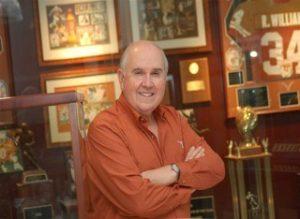
Inducted into the Longhorn Hall of Honor in 1993 for distinguished service to UT athletics, Little served his alma mater in many capacities: as assistant sports information director under the legendary Jones Ramsey, as Sports Information Director, then Special Assistant to the Athletic Director, Assistant AD for External Communications, then head of communications for football coach Mack Brown. The job titles changed, but the work address stayed the same.
Little worked through the reigns of five football coaches, five basketball coaches, and six athletic directors during his time at The University. Decades of Longhorn football, basketball, and baseball fans recognized that familiar voice over the public address system in stadiums and on radio broadcasts.
Through his final full-time football season of 2013, Little held the all-time record for consecutive games worked by a Division I SID: 521. The string was almost broken when, just before the 1995 Sugar Bowl, he suffered a heart attack, but the ever-professional Little convinced doctors that he would be under more stress staying in the hospital than he would be attending the game. Streak intact.
Little’s legacy to The University of Texas is remarkable. He served as mentor and father figure to countless student-athletes through the years. THE College Sports Information Directors Academic All-America Committee recognized Little’s influence on UT’s athletes by awarding him the Lester Jordan Award, “for exemplary service … and the promotion of the ideals of being a student-athlete.”
He has been a good-will ambassador and host to hundreds of sportswriters and broadcasters who grew to love Austin and Tex-Mex while covering Longhorn athletic events. Young writers sought and found encouragement, counsel, and occasionally, employment from the veteran journalist. Little earned a reputation as the authority on UT Athletics history, and his award-winning columns and later his web commentaries have left the Longhorn Athletic Department a written history–a vast archive–of its athletics programs and those who made it great. Little has authored or co-authored nine books on UT and college athletics.
Little attended his first CoSIDA workshop at the 1969 Chicago meeting, then entered the officer rotation in 1985. He served as president of CoSIDA in Washington, D.C. in 1989 presiding over the first 1,000-plus person workshop in CoSIDA history. Named to the CoSIDA Hall of Fame in 1992, Little received the Arch Ward Award in 1998, for “inspiring excellence in and bringing dignity to our profession.”
A giant in his profession, Little received the Football Writers of America Lifetime Achievement Award in 2014, and in 2016 he was recognized by his peers in the College Sports Information Directors of America with their Lifetime Achievement Award. One of the most decorated sports publicists in the profession, the National Collegiate Baseball writers awarded him the Wilbur Snypp award “for outstanding contributions to college baseball.”
Awards were not new to Little, however. As a student journalist on the staff of the Daily Texan, he received five national William Randolph Hearst awards for writing excellence. One of those came as part of the Texan’s team coverage of the assassination of President John F. Kennedy. He authored the front-page profile of new President Lyndon Johnson.
Those weeks in November of 1963 marked a significant time in the work of student journalists who comprised the staff of The Daily Texan. On November 12, 1963, a group of students at Texas A&M made news by “kidnapping” Bevo, the Texas Longhorn mascot. Little led the coverage, staying with the story until after midnight in College Station when the steer was turned over to Texas students representing The University.
Then, on Friday, November 22, the Texan staff sprang into action and put out a rare “Bulletin” edition after President Kennedy was killed in Dallas.
The final piece of that coverage came six days later, when Texas beat Texas A&M in College Station to claim the school’s first National Championship in football, and Little and the staff’s coverage climaxed a remarkable time in history of the Texan.
After returning to the Texas SID office in 1968, Little worked 37 bowl games, and accompanied an NCAA record 25 teams to the College Worlds Series in Omaha.
Through the decades, he has brought great honor, to The University, to the profession he loves, and to himself, interacting with six United States presidents, and countless national figures in sports, entertainment and the political arena. His influence is so great that the football and baseball press boxes at Texas are now named the “Bill Little Media Center,” a gift from longtime friend and UT athletics supporter Marian Dozier, who donated the funds to honor Little.
“It means so much to be able to honor my great friend Bill in this way,” Dozier said. “This naming will help honor his immense life work, the legacy he has left nationally on sports media and hopefully motivate young people to follow their passions in work and life.”
Bill’s wife, Kim Scofield, is also his advisor and editor and has been a true partner in his work. They have three children and ten grandchildren, all of whom are Texas Longhorn fans.
“I always found that, if you can write something that can make a difference to somebody, it can change a life,” Little said. “I was a bad golfer and a worse tennis player. I wasn’t big enough to play football, and I was too short to play basketball, so my only gifts were to write and talk. And, if I was going to do what God put me on this planet to do, then I needed to do those things. It doesn’t cost you anything to be nice to people.”
Upon his retirement in 2014, Little said, “Texas Athletics has pretty much been my life for close to 60 years. But now, I think I’ve earned the right to set my bucket down.”
But that retirement didn’t last long. When Mike Perrin became Athletics Director in 2015, Little returned in an advisory capacity to the Athletics Department. In the spring of 2017 he was recognized for 50 years of broadcasting Longhorn baseball games, and today he continues to contribute when asked, with commentaries and profiles on the Texassports.com website.
Little’s Texan career began in the summer of 1961, when he began writing for the sports staff.
“Looking back at the old clippings, I discovered I had been named the Texan “Male newcomer of the year” during my sophomore year (1961-62). We published a “Summer Texan” back in those days, and our “new students edition” was quite popular,” Little said. “Summer was a great time to get started writing for the Texan, so I was fortunate to wind up being the sports editor for the new students edition As best I can tell, my first pay check from “Texas Student Publications” came that summer of 1962.
“That September, I was Associate Sports Editor and was given a Hearst Award for writing a story on the death of a sophomore football player named Reggie Grob, who died after suffering a heat stroke on the first day of football practice.
From 1962 through 1964 I worked as member of the Texan permanent staff, serving as Texan Sports editor, before resigning in the fall of 1964 to work full-time for the American Statesman. In those days, with a limited student sports staff both on the Texan and in the UT Athletics “Sports News” office, I was able to do double duty. I also picked up extra money covering high school sports for the American Statesman.
“Working in the SID office, as well as for the Texan, I developed a relationship with Coach Royal. I was fortunate to be sports editor of the Texan (as well as earning a whopping $50 per month as a student intern in the athletics department) during the 1963 football season.”
RENAE MERLE
Renae Merle is a business reporter at The Washington Post who writes primarily about banking and finance. During the 2020 pandemic, Renae has covered government programs launched to save small businesses from collapse and the growing eviction crisis.
She joined The Washington Post in 2001, less than two weeks before the Sept. 11 attacks. As a reporter, she has covered defense contractors and the collapse of the housing market during the 2008 financial crisis. As an assignment editor, she helped guide The Post’s coverage of major news.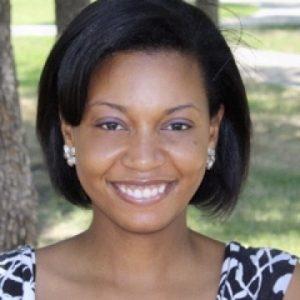
Renae started her career in journalism as a general assignments reporter, news editor and managing editor at The Daily Texan. As a reporter, she covered then-Gov. Ann Richards and future President George W. Bush.
While at UT Austin, she completed internships at the Austin American Statesman, Newhouse, the Associated Press and Wall Street Journal. She graduated in 1998 with a bachelor’s in journalism.
After college, Renae worked in the Austin bureau of The Associated Press where she covered the state Legislature. She then spent two years in the Dallas and Chicago bureaus of The Wall Street Journal before joining The Washington Post.
Renae was awarded the Knight Bagehot Fellowship at Columbia University in 2010 where she earned a Master of Journalism. She earned an MBA from Columbia Business School in 2012.
JOHN MCCONNICO and JEAN-MARC BOUJU
John McConnico and Jean-Marc Bouju likely would have chosen other professions if they hadn’t joined The Texan. Because of the Texan, they chased one another around the globe for more than a decade, first to Central America, then to South Asia and Africa.

They were both part of the Associated Press (AP) team that won the 1999 Pulitzer Prize for spot news photography for coverage of al Qaeda’s bombing of U.S. embassies in East Africa.
They reveled in traveling the world, learning languages, experiencing many cultures, and filing photos to the AP, which reaches half of the planet’s population every day.
John McConnico, of Fort Worth, won the 1997 World Press Photo second-place prize for spot news for coverage of a hurricane in Puerto Rico and was part of the AP team that won the 1999 Pulitzer Prize for spot news photography.
McConnico earned a Bachelor of Journalism in 1987 and a Master of Arts in 1994 from the Department of Journalism. He worked at The Daily Texan from 1989 to 1992.
John McConnico’s list of awards and honors includes:
The Daily Texan, 1989-1992
Pulitzer Prize, Spot News, US Embassy bombing, Nairobi, 1999
Overseas Press Club John Faber Award, The Middle East, 2003
AP Managing Editor’s Award, Violence in the Middle East, 2003
1st Prize South Asian Journalists Association, New York, 1999
1st Prize, World Press Photo Children’s Award, 1997
2nd Prize, World Press Photo, Spot News Stories, 1997
Best of Show, National Headliner’s Mall Dodson Award, 1997
Inter-American Press Association ABC Color Award, Chile, 1997
Jean-Marc Bouju won many photojournalism awards, including the 2004 World Press Photo of the Year for an image of an Iraqi father comforting his 4-year-old son while they were in the custody of U.S. forces in Iraq.
He also won the 1995 Pulitzer Prize for feature photography and 1999 Pulitzer Prize for spot news photography as the major contributor to two packages of photos by the Associated Press.

Bouju came to the University of Texas through an internship at the University of Nice, in his native France. He worked at The Daily Texan from 1991 to 1993 and was a master’s student in photojournalism.
Jean-Marc Bouju’s list of awards and honors includes:
The Daily Texan 1991 to 1993
World Press Photo, Picture of the Year, Hooded Iraqi prisoner of war with son, 2004
World Press Photo, People in the News Singles, First Place, Hooded Iraqi POW with son, 2004
Pulitzer Prize Spot News Photography, U.S. embassy bombings in East Africa, 1999
Pulitzer Prize Feature Photography, Rwandan war, genocide and refugee crisis, 1995
Pulitzer Prize Spot News Photography Finalist, execution in Kinshasa, Zaire, 1998
National Headliner Award, Spot News, First Place, Hooded Iraqi POW with son, 2004
Prix de Bayeux for War Reporters, Second Place, Hooded Iraqi POW with son, 2003
Associated Press Managing Editors (APME) President’s Award, Iraqi war, 2003
APME winner Spot News Photography, 1995, 1996, 1997
Pictures of the Year, Spot News General category, Award of Excellence, Uganda Cult, 2001
National Headliner Award, Single News, Third Place, coverage of U.S. embassy bombings, 1999
Alfred Eisenstaedt Awards for Magazine Photography, finalist, U.S. embassy bombings, 1999
Pictures of the Year, Global News, Award of Excellence, Liberia civil war, 1997
College Photographer of the Year, Second Place Single Feature Photography, Guatemala, 1992
Roy W. Howard Award in Public Affairs, First Prize, coverage of peace in El Salvador, 1992
Support The Daily Texan and its staff by donating here. All funds donated to the Friends of The Daily Texan go directly to scholarships for Texan staffers, photo and video and other equipment purchases, training, travel and other needs of The Texan. The Friends group is a 501 3c organization and donations are tax deductible.
